2017 Otago Spotlight Series: Child Health Research
Thank you to everyone who participated in, helped, and provided valuable feedback.
The videos of the research presentations are available in our Child health Research website:
Spotlight series videos now availableSpecial congratulations to the prizewinners of the Student Poster Competition:
2017 Otago Spotlight Series: Child Health Research Poster Competition winners
Date: Tuesday, 12 September 2017, 9am-3.30pm
Venue: Nordmeyer Lecture Theatre, University of Otago, Wellington, 23A Mein Street
 Over a dozen University of Otago researchers will be in the spotlight providing short, easy-to-understand outlines of their work in child health. Fellow researchers will join invited guests including funders, policymakers, clinicians, research institutions, and community and government agencies for a day exploring:
Over a dozen University of Otago researchers will be in the spotlight providing short, easy-to-understand outlines of their work in child health. Fellow researchers will join invited guests including funders, policymakers, clinicians, research institutions, and community and government agencies for a day exploring:
- Genetics and health
- Healthy pregnancies
- Healthy childhoods
- Childhood conditions and treatments
- Inequalities in child health
Download our programme (PDF 1.8 MB)
Student research poster competition
A student research poster competition will be held on Monday, 11 September 2017. Finalists will present their posters to the Spotlight Series audience on Tuesday 12 September in Wellington for final judging.
Child health research presenters
Meet our presenters.
Professor Stephen Robertson
9.15am Topic: Genomic medicine in paediatrics: Will it serve all New Zealand's children equally well?
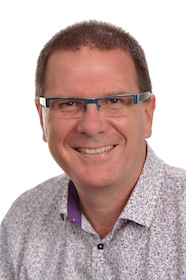 Stephen Robertson has been the Curekids Professor of Paediatric Genetics at Otago University in Dunedin, New Zealand since 2002. He was educated at the Unversity of Otago, graduating in Medicine in 1990. He specialised in Paediatrics and then subspecialised in Clinical Genetics after training in Auckland and Melbourne.
Stephen Robertson has been the Curekids Professor of Paediatric Genetics at Otago University in Dunedin, New Zealand since 2002. He was educated at the Unversity of Otago, graduating in Medicine in 1990. He specialised in Paediatrics and then subspecialised in Clinical Genetics after training in Auckland and Melbourne.
During a Nuffield Medical Fellowship at the Institute of Molecular Medicine at Oxford University, he studied the genetic basis of a set of genetic disorders characterised by severe life-limiting malformations in children. His work in this area has led to the implication of several genes in the generation of malformations in children, with a particular focus on conditions that affect the skeleton and brain. This work included the characterisation of the genetic basis of a broad group of disorders affecting the development of the skeleton, the implication of genes in the development of cancers and the genesis of skeletal and brain malformations, and studies that have implicated retinoic acid, a form of vitamin A, in skeletogenesis in humans.
His research involves widespread collaborations with scientists and clinicians across the globe. He was awarded the Health Research Council's Liley Medal for outstanding contributions to medical research in 2010.
Professor Robertson continues to be an active clinician, staffing clinics throughout the South and North Islands, in addition to teaching genetics to science and medical students in Dunedin. His work is supported primarily by Curekids, along with the Marsden Fund and the Health Research Council of NZ.
Dr Max Berry
9.35am Topic: Big data for small babies
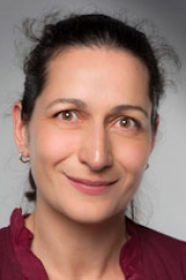 Max Berry's research interests include the impact of preterm birth on cardiac autonomic function, vascular function and the development of regional adiposity. In particular, Dr Berry has an interest in translational biomedical research, and the integration of basic sciences with advances in perinatal care.
Max Berry's research interests include the impact of preterm birth on cardiac autonomic function, vascular function and the development of regional adiposity. In particular, Dr Berry has an interest in translational biomedical research, and the integration of basic sciences with advances in perinatal care.
She obtained her BSc in Developmental Neurobiology from the University of London prior to completion of undergraduate medical training at Guys and St Thomas's Hospitals, London. She obtained MRCPCH in the UK just before emigrating to NZ, where she completed her training in neonatal and perinatal medicine in Hamilton and Wellington.
In 2008 Dr Berry was awarded an HRC Fellowship for PhD studies; during the course of her PhD she examined the long-term effects of preterm birth, early nutrition and antenatal corticosteroid exposure on cardiometabolic outcomes in sheep.
Dr Stephanie Hughes
9.55am Topic: Repurposing drugs for rare diseases
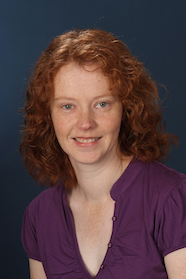 Research in our lab is aimed at identifying molecular pathways that regulate neuronal development, maintenance and disease. Our current research focuses on transcription factors of the forebrain embryonic zinc finger family and their role in neuronal development and maintenance, and on the molecular consequences of mutations in Batten disease, a childhood neurodegenerative disorder. The lab is also developing tools and gene therapy vectors for Batten disease as well as Alzheimer's and Parkinson's disease.
Research in our lab is aimed at identifying molecular pathways that regulate neuronal development, maintenance and disease. Our current research focuses on transcription factors of the forebrain embryonic zinc finger family and their role in neuronal development and maintenance, and on the molecular consequences of mutations in Batten disease, a childhood neurodegenerative disorder. The lab is also developing tools and gene therapy vectors for Batten disease as well as Alzheimer's and Parkinson's disease.
Professor Barry Taylor
10.15am Topic: A Better Start National Science Challenge: An overview
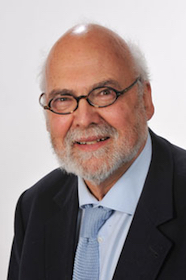 Barry Taylor's research interests have spanned paediatric endocrinology, sudden unexpected death in infancy (both epidemiology and the physiology underpinning the ability of infants to wake up on arousal), and the development of national mortality review for child and youth deaths.
Barry Taylor's research interests have spanned paediatric endocrinology, sudden unexpected death in infancy (both epidemiology and the physiology underpinning the ability of infants to wake up on arousal), and the development of national mortality review for child and youth deaths.
He has, with other staff in the Department, developed interests into the investigation of sleep disorders of children, especially disorders of breathing and autonomic function during sleep and their effects on daytime behaviour.
With the rapidly increasing child obesity rates a national problem, a significant part of Barry's research now focuses on prevention and management of this issue. Of special interest is the interaction (at many levels) between sleep and obesity.
Dorothy Boyd
11.10am Topic: Prevention of caries and targeting care
Dorothy Boyd is a Senior Lecturer in the Department of Oral Sciences. She will present findings from research that was conducted with colleague Associate Professor Lyndie Foster Page.
Their collaborative work encompasses a wide range of oral conditions, problems, and settings—most notably in the fields of adolescent oral health and dental caries. Particular interest lies in improving oral health outcomes and reducing health inequalities, and fostering links with both primary care and industry to reach these goals. However, much of this research is concerned with oral health-related quality of life in children and adolescents.
Dorothy Boyd and Associate Professor Foster Page are involved in cross-sectional surveys, and in a variety of health services research and clinical projects. Clinical projects involve novel approaches to managing caries in children and include a HRC feasibility project (Hall technique) and a randomised control trial in Otago (ICON technique)
Professor Andrew Day
11.30am Topic: IBD and Crohn's disease
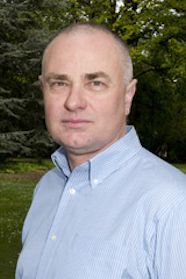 Andrew Day trained in paediatrics in Christchurch and undertook further subspeciality training in Toronto, Canada. After completing clinical and research training in Canada, Dr Day took up a clinical academic position at University of New South Wales, Sydney, Australia. He returned to the department in 2009 and was appointed to Head of Department in 2010.
Andrew Day trained in paediatrics in Christchurch and undertook further subspeciality training in Toronto, Canada. After completing clinical and research training in Canada, Dr Day took up a clinical academic position at University of New South Wales, Sydney, Australia. He returned to the department in 2009 and was appointed to Head of Department in 2010.
Professor Day is a paediatric gastroenterologist. His research interests include Inflammatory Bowel disease, Crohn's disease and Coeliac disease, with projects focusing upon host-pathogen interactions in the gut (and how these relate to chronic gut diseases), intestinal inflammatory biomarkers, and nutritional aspects of gut diseases.
Associate Professor Louise Signal
11.50am Topic: Kids' camera
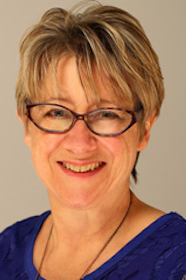 Louise Signal is a social scientist with a PhD in Community Health from the University of Toronto. She has worked and done research in the field of health promotion for 25 years in a range of roles, including Senior Advisor (Health Promotion) for the New Zealand Ministry of Health.
Louise Signal is a social scientist with a PhD in Community Health from the University of Toronto. She has worked and done research in the field of health promotion for 25 years in a range of roles, including Senior Advisor (Health Promotion) for the New Zealand Ministry of Health.
Her research interests include tackling inequalities in health, healthy public policy, health impact assessment, and healthy eating and healthy action.
Louise is a Director of the Health Promotion and Policy Research Unit (HePPRU) and Health, Wellbeing & Equity Impact Assessment Research Unit (HIA). Currently, Louise leads an HRC funded project that asks Is Junk Food Promoted Through Sport. Louise has a number of community service roles including chairing the Academic Committee of the Health Promotion Forum.
She teaches undergraduate and postgraduate courses in health promotion.
Professor Gerald Tannock
1.30pm Topic: Sustaining the bowel microbiota of children
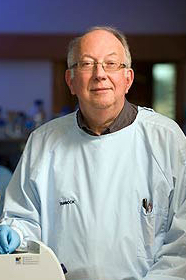 Gerald Tannock's research investigates the bacterial community living in our guts, and what that means for our health across the duration of our lives.
Gerald Tannock's research investigates the bacterial community living in our guts, and what that means for our health across the duration of our lives.
The gut of vertebrates is home to a bacterial collection of amazing biodiversity. For example, several hundred bacterial species live together in the human colon where they form a self-regulating community. The community is often referred to as the 'microbiota'.
"Obligately anaerobic bacteria predominate in the colonic microbiota. They hydrolyze plant residues from the diet that have not been digested in the small intestine. So, the gut microbiota begins the recycling of dietary waste inside the colon by degrading plant polymers and fermenting the hydrolysis products to short chain fatty acids.
"These fatty acids provide a source of calories for the human because they are taken up by the intestinal mucosa and incorporated into biochemical pathways. Members of the microbiota also recycle human secretions, such as mucus.
"Our research objectives are to understand how the members of the microbiota (referred to as commensals) live in the gut, and the consequences to the host of this life-long association with these bacteria."
Associate Professor Barbara Galland
1.50pm Topic: The importance of sleep for health
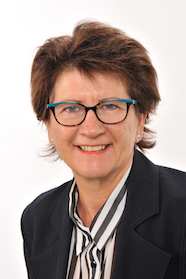 Barbara Galland is a principal investigator on a research programme that investigates the impact of sleep disorders in children and adolescents on daytime functioning. She measures sleep and breathing, cognitive development, and learning through clinic-based studies focusing on specific problems (currently, obesity) as well as community-based studies focusing on early childhood development.
Barbara Galland is a principal investigator on a research programme that investigates the impact of sleep disorders in children and adolescents on daytime functioning. She measures sleep and breathing, cognitive development, and learning through clinic-based studies focusing on specific problems (currently, obesity) as well as community-based studies focusing on early childhood development.
The first publication from this research was one of a handful of intervention studies suggesting a causal relationship between sleep disordered breathing and problematic behaviour and attention deficits in children. Important new findings are beginning to emerge from our developmental study demonstrating these associations in very young children (age 3) with a focus on learning, memory and early literacy and numeracy.
Ongoing work in obesity aims to elucidate the connection between child / adolescent sleep and obesity. A sleep hygiene programme has been developed in consultation with youth and preliminary results on children aged 10-18 years with problematic sleep are encouraging.
Dr Amanda D'Souza
2.10pm Topic: Child-centered public policy? A comparative qualitative case study of New Zealand, Australia and Sweden
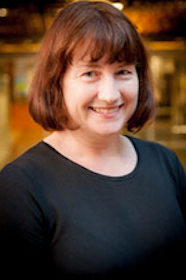 Amanda D'Souza is a public health physician with a special interest in child and youth health. She is undertaking her PhD research ('Healthy public policy for children in New Zealand: Overcoming the obstacles') with the Health Promotion and Policy Research Unit, funded by a Health Research Council of New Zealand Clinical Research Training Fellowship. Amanda is also a senior lecturer for the Department of Paediatrics.
Amanda D'Souza is a public health physician with a special interest in child and youth health. She is undertaking her PhD research ('Healthy public policy for children in New Zealand: Overcoming the obstacles') with the Health Promotion and Policy Research Unit, funded by a Health Research Council of New Zealand Clinical Research Training Fellowship. Amanda is also a senior lecturer for the Department of Paediatrics.
Amanda's interests include: the social determinants of child health and development; child health promotion, particularly the Well Child Tamariki Ora programme and healthy public policy; child maltreatment prevention; and the UN Convention on the Rights of the Child.
Bernadette Jones and Dr Tristram Ingham
2.30pm Topic: Asthma health literacy for Māori children: He māramatanga huangō
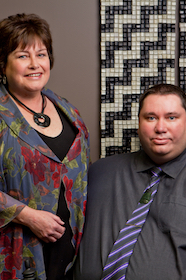 Bernadette and Tristram are part of the Wellington Asthma Research Group, a multidisciplinary team of researchers based in the Department of Medicine at the University of Otago, Wellington. The research programme covers clinical, biomedical and public health aspects of allergy, asthma and respiratory research, including studies to understand the causes and investigate novel treatments.
Bernadette and Tristram are part of the Wellington Asthma Research Group, a multidisciplinary team of researchers based in the Department of Medicine at the University of Otago, Wellington. The research programme covers clinical, biomedical and public health aspects of allergy, asthma and respiratory research, including studies to understand the causes and investigate novel treatments.
Bernadette's research interest lies in the area of asthma in the Māori population. Her focus includes applying a Māori-centred consultation approach for engaging with Māori patients and Kaupapa Māori research methodology. She is involved in the Pukapuka Hauora asthma study.
Tristram is currently involved with a number of epidemiological and clinical studies. His major research interests are asthma (particularly among Māori), bronchiolitis, the role of vitamin D in respiratory health, and sleep disordered breathing.
Professor Brian Darlow
2.50pm Topic: Preterm infants—starting better, developing well
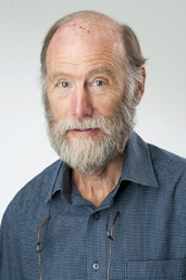 Brian Darlow trained in the United Kingdom and New Zealand, with a spell in Papua New Guinea. He returned to the department as Senior Lecturer in 1982 and was appointed to the Chair of Paediatrics in 2001.
Brian Darlow trained in the United Kingdom and New Zealand, with a spell in Papua New Guinea. He returned to the department as Senior Lecturer in 1982 and was appointed to the Chair of Paediatrics in 2001.
He is a clinical neonatologist and his research interests include free radical disease in the newborn, and the epidemiology and outcome of complications of prematurity. He is also consultant in charge of the paediatric diabetic clinic. Brian is the Cure Kids Professor of Paediatric Research.